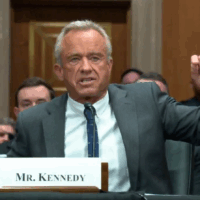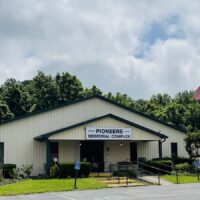The Centers for Medicare & Medicaid Services released new staffing requirements in April that focus on standardizing nurse staffing, requiring 24/7 access to registered nurses and regulating facility assessments.

Made as a part of the Minimum Staffing Standards for Long-Term Care Facilities and Medicaid Institutional Payment Transparency Reporting final rule, these requirements will be rolled out in phases throughout the next three years, with some rural areas being given up to five years to meet them. This mandate comes in response to the President’s Executive Order on Increasing Access to High-Quality Care and Supporting Caregivers.
Despite the leeway for rural healthcare facilities, there are sweeping concerns among healthcare leaders when it comes to this mandate as nursing shortages continue in many states. The American Health Care Association with the National Center for Assisted Living reports only 6% of nursing homes currently meet all requirements, with 80% of nursing homes having to hire more RNs.
Morgan Jemtrud, the director of communications for state AHCA affiliate, said the new mandate could lead to facility closures in the Bluegrass State. She said every nursing home in the state would have to hire additional nurses and nurse aides under the requirements and that’s beyond the increased demand for space in nursing homes as the baby boom generation comes to retirement age.
“The idea of hiring more staff: we’re on board with that. The problem arises because those staff aren’t available to be hired. They’re in other sectors of healthcare,” she said. “The idea is certainly in the right place, but unfortunately it’s just not quite in line with the reality of the industry at this point.”
The AHCA and NCAL estimates nearly one-quarter of facility residents nationwide are at risk of displacement from their current nursing home due to the staffing mandate.
“I think the biggest issue is that this rule jeopardizes senior’s access to care,” Jemtrud said. “We’re staring at something that really impedes people’s ability to access care in their hometowns and local areas, and the idea that this impact will be especially felt in rural and underserved communities is one I really want to emphasize.”
The Centers for Medicare & Medicaid Services have allowed some temporary exemptions in their guidelines for facilities who are not able to meet standards – like if the nurse, nurse aide and RN population ratio in its area are a certain percentage below the national average – but these facilities must prove they are actively trying to hire staff and offer competitive wages.
Facilities are not eligible for exemption if they have not documented staff wages, have been proven to endanger patients due to staffing shortage or if they have been identified as a “special focus facility” by CMS.
This story is republished with permission from WKMS. Read the original.
Abigail Lonsway is a student at Murray State University. She enjoys music, the arts, and pop culture. She majors in TV Production.





